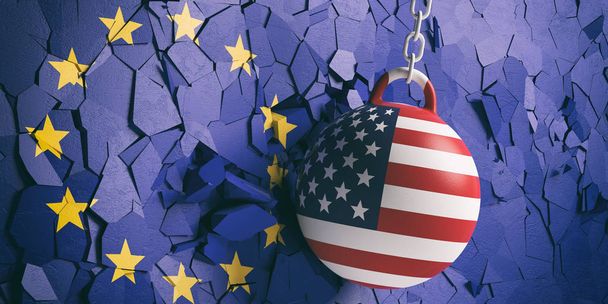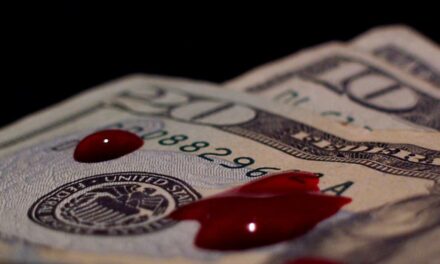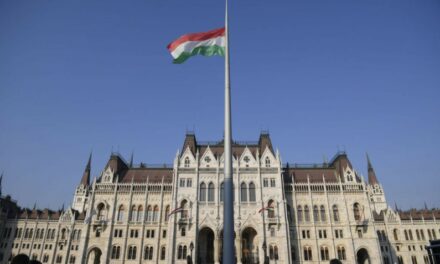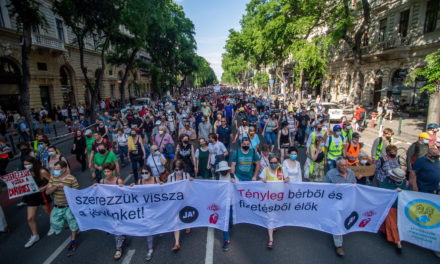Paradoxically, the costs caused by the Russian-Ukrainian war are increasingly less bearable for the rich, democratic EU countries than for poor, isolated Russia.
The billion-dollar arming of Ukraine, the spectacular solidarity and the sanctions against Moscow may put the most important achievement of the West in jeopardy, writes Robert D. English, a professor at the University of Southern California and a former Pentagon analyst, in The National Interest.
Even as politicians' words reinforce Western unity and experts hail the impact of weapons sent to Ukraine, economic problems could break that solidarity where it matters most - in the European Union. Paradoxically, the rising costs of war seem less sustainable for rich, democratic EU countries than for poor, isolated Russia. Europeans will be shocked by deprivation, soaring energy costs, cuts in aid to the poor, and a looming recession. Disagreement over aid to Ukraine caused the recent collapse of Italy's governing coalition, which bodes ill for other centrist European governments.
The transatlantic unity that diplomats worked so hard to create is about to unravel.
This pessimism surprises Americans, who have little access to the costs of the war, and whose media continues to talk about a Ukrainian victory. Most commentary focuses on the weakness of the Russians - the economic crisis, military failure, political isolation - and therefore those who argue for ending the war through peace negotiations are often ridiculed. However, as economic and political endurance tips the scales in Moscow's favor, it becomes increasingly unrealistic to defeat Putin by force. Tactically, however effective Javelin missiles and HIMARS artillery were, they did not change Ukraine's strategic environment -
it is a brutally grinding war in which Russia's resource advantages and resilience allow it to push forward steadily.
Underestimating Russia
Wasn't it about Russia not being able to stand up to the economic power of the West, and that its economy is smaller than Italy's?
However, Putin is not fighting for the favors of Western economies, but to produce enough weapons and soldiers against Ukraine's Western-backed army!
Wasn't it said that the sanctions would destroy Russia and crush its currency?
However, the ruble is now stronger than before!
And while Russia's economy will shrink by at least 6 percent in 2022, it will dwarf Ukraine's 45 percent plunge. What is even more important:
Russia's ability to survive negative growth of 6 percent is stronger than that of many European governments to survive negative growth of 3 percent.
What matters is not the absolute measure of economic or military power, but how much more Europe - and Ukraine - can sacrifice to continue the war, while Russia shows a resilience that few could have foreseen.
The USA's unilateral foreign policy underestimated Russian resentment, so they had no idea that the annexation of Crimea in 2014 - Putin's response to Ukraine's entry into the EU and NATO - would push his popularity above 80 percent despite harsh economic sanctions. Instead, Western analysts predicted that the sanctions would cripple the Russian economy, particularly the vital oil sector. Of course, most of them were also surprised by what happened next: Russia completed the gas pipeline to China and Turkey, built a new LNG terminal in Siberia, and established a road and rail connection with Crimea.
The paradoxes of power and abundance
With a record of underestimating Russian resilience, it is not surprising that many confidently expected Putin to be brought to his knees quickly after the invasion of Ukraine. To be fair, the measures taken were of unprecedented severity. More than 1,000 persons and their assets were sanctioned. Exports of goods ranging from high-tech to luxury have been halted and hundreds of companies have closed their operations in Russia. Russian banks were excluded from the SWIFT international payment system and more than $600 billion in Russian reserves were frozen.
Yet it turned out that Moscow was prepared.
The alternative payment system for exports and the huge cash reserves have withstood the sanctions much better than expected. After a brief collapse, the ruble rebounded strongly thanks to the clever use of interest rates and capital controls. The ruble benefited from rising oil prices and Moscow's move to ask for rubles in exchange for gas. Although some customers refused, major importers such as Germany and Italy quickly complied. Yet how could the weaker party dictate the terms of trade?
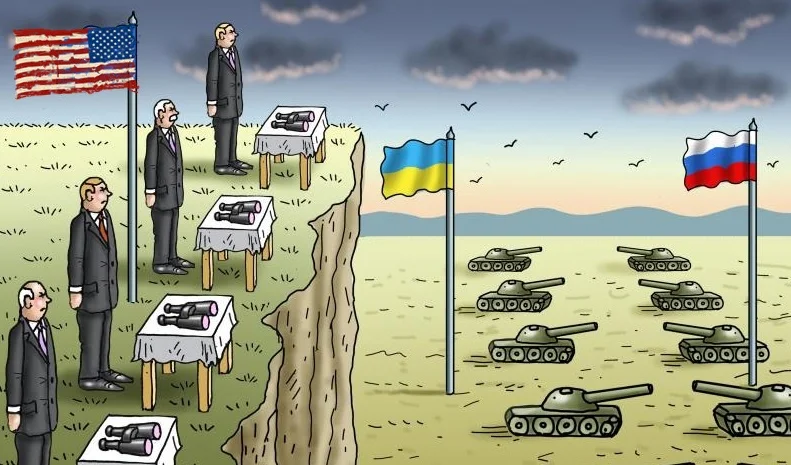
Source: magyartudat.com
You're fired! Indeed? Just listen!
Historians will look back on the EU-Russia energy war as a cautionary example of how political-economic influence should not be used. As the EU introduced ever-tightening sanctions against Moscow, they announced a freeze on imports of Russian crude oil and natural gas. The Atlantic shells have been pushing for this for a long time, and the centrist Europeans have finally agreed to strip Putin of his export earnings.
“Okay,” the Russians replied, “we can speed up the transition to new energy sources by reducing the amount of gas we currently ship. "
To which the EU panicked:
"Wait a minute, we haven't even prepared to stop gas imports by 2026! You are blackmailing us!”
The basic lesson is to never pick up a grenade unless you're ready to throw it at an enemy right away, because it will eventually explode in your hands.
A foolish decision-maker who fails to assess the collateral damage of sanctions is like a poor poker player who raises the stakes while ignoring the fact that his opponent sees his cards. The Europeans were pushed into this "bet" by American leaders, who have long argued for replacing Russian pipeline gas with American LNG, even though neither side has the necessary export (US) or import (EU) terminal and tanker capacity. That's why Europe is now like the boss who wails that
"Wait, you can't quit, I'll fire you first!"
In the meantime, while the EU is struggling with the search for alternative gas sources and the distribution of gas this winter, China and India are smiling scornfully at Moscow's "energy blackmail".
However, China and India's views matter not only because they are among the majority of countries in the world that have not joined in sanctioning Russia, but also because they are the two largest countries that prefer to buy Russian oil and gas. This will help Moscow make up for lost sales in Europe, as some of the Russian oil bought by India is actually resold in EU markets. Similarly, some countries that proudly announced the end of Russian gas imports continue to import it - only indirectly, through Germany, Italy, or France.
How strange that the EU's new mandatory gas storage targets are seen as a "historic step" on the road to "divesting from Russian gas", when these targets can only be achieved by importing more Russian gas.
In March, when the sanctions were announced, EU officials celebrated transatlantic cooperation and mocked Putin for unwittingly strengthening European unity. Now, five months later, Putin is mocking the EU's desperation.
Europe's summer of discontent
In recent days, millions of European consumers have been notified of a sharp increase in the price of gas and electricity, while the EU has agreed to cut natural gas consumption by 15 percent. However, the statements of EU leaders do not guarantee that the member states will comply with the rules, and divisions appear along the already well-known east-west and north-south fault lines, reviving the smoldering anger caused by the previous debt and refugee crises.
In the coming weeks, a number of factors will combine to fuel the feud. One is the heat—record-high temperatures that cause wildfires and parched land—which cost more than $30 billion as of June. The extreme heat also increases the demand for energy, both to ensure the spread of air conditioners and to replace water lost due to drought. Another economic blow is the coronavirus shutdowns in China, which are disrupting supply chains. Meanwhile, illegal immigration to Europe has surged again – up by around 80 percent from last year. Many migrants from Iraq, Syria, Egypt and other North African countries are driven by food insecurity, exacerbated by war-induced grain shortages. This also increases the tension between the Northern European and Eastern European states, as the latter have already been flooded by Ukrainian refugees.
Most US coverage of the costs of war ignores energy costs and conflicts in Europe, focusing instead on military aid to Ukraine, where the US spends more than the EU. But if all types of economic aid to Ukraine are taken into account, including indirect costs such as support for more than five million war refugees, the European contribution is much larger. The Europeans were also recently faced with the fact that their bill for the possible reconstruction of Ukraine will be at least 1 trillion dollars, so all in all, Europe's burdens related to Ukraine could be close to 10 percent of the EU's total annual GDP. And even without a serious energy crisis, this would cause significant economic and political disruptions.
Can Western solidarity withstand the war of attrition?
European public opinion had shifted toward "anti-war" even before Russia began cutting gas supplies. A May poll found that while a majority blamed Moscow for the conflict, they also thought it was more important to negotiate a settlement than make further efforts to defeat Russia and continue the war. A growing number of people disagree with their governments' policy of arming Ukraine instead of pushing Kiev toward a ceasefire. However, EU and NATO officials to this day ignore the cracks and ask for patience to continue their policies.
However, they rarely think about the fact that no one ever voted for this policy.
Feedback may come from Italy in the autumn, where opinion polls predict the victory of a right-wing coalition whose leaders do not suffer from "Putinphobia".
Russia's resilience may be illusory – as Putin's power is not as stable and his army more fragile than they appear – so if Europe can survive the harsh winter, it may be rewarded with a Ukrainian triumph. But it seems equally likely that even with the battlefield twists and turns, Russia will retain a significant portion of Ukraine's territory, while Europe is squeezed by months of high inflation and severe energy and raw material shortages. Angry workers have already staged disruptive strikes from the UK and Norway to Germany and Spain, and the escalating difficulties could lead to a wave of social unrest beyond the scale of the Covid shutdowns. And the tensions caused by immigrants could shake the power of some European governments, straining transatlantic relations and undermining support for Ukraine.
It's a worst-case scenario, but it's not as unlikely as it seemed weeks ago. While focusing on Russia's weaknesses, it is vital to appreciate the vulnerability of the West and the threats to the political and economic unity of the EU.
The realization that the war can only end with a negotiated settlement, combined with smart policy, can maximize Western influence, whereas months of confusion would make it impossible.
More and more arms shipments may lead to Ukraine's victory, but it can also cause much greater destruction, which, in addition to Ukraine, also imposes devastating burdens on the fragile European Union.
Featured image: Stockphoto

